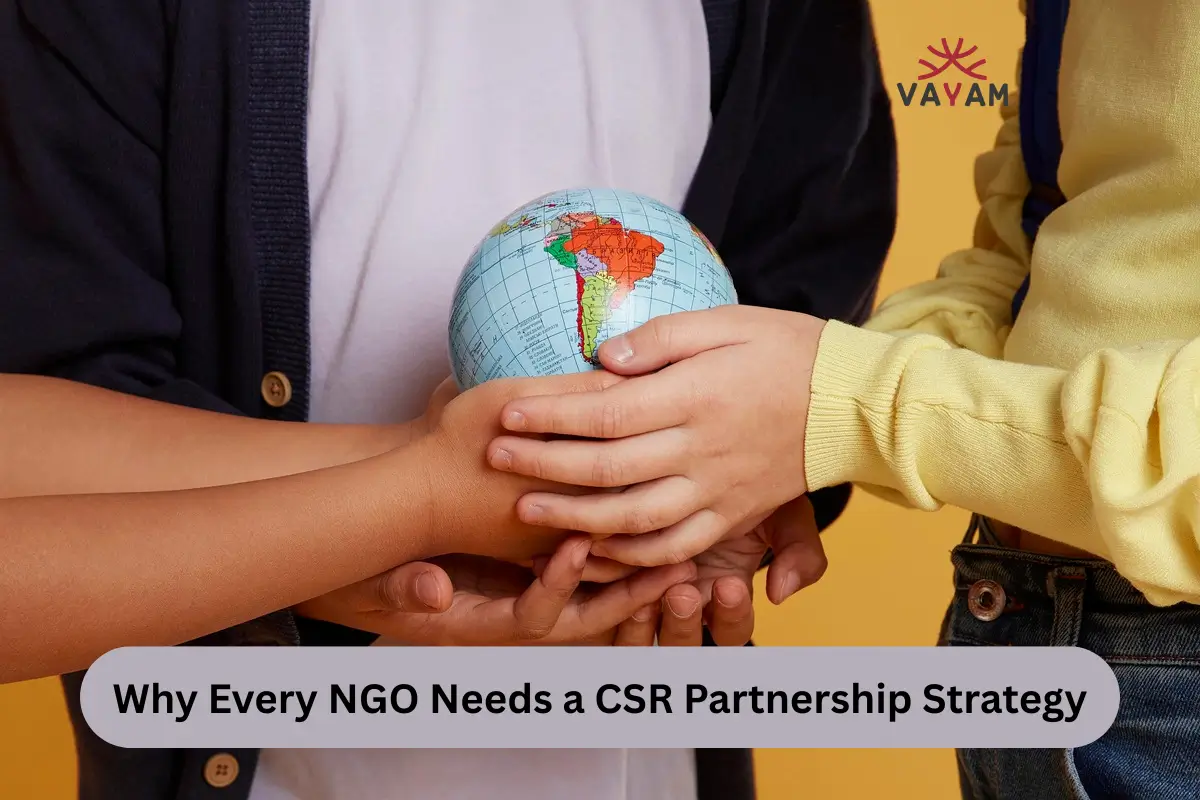
In today’s world, NGOs (Non-Governmental Organizations) play a vital role in addressing various social, environmental, and economic issues.
However, many NGOs face significant challenges in securing funding to support their causes. This is where CSR (Corporate Social Responsibility) partnerships come into play.
In this blog, we will explore the importance of CSR partnerships for NGOs and provide a comprehensive guide on how to develop a successful CSR partnership strategy.
What is CSR Partnership?
CSR partnership refers to a collaborative relationship between a corporation and an NGO, where the corporation provides financial, technical, or human resources to support the NGO’s social or environmental programs. In return, the corporation benefits from enhanced brand reputation, improved stakeholder engagement, and increased social impact.
Benefits of CSR Partnerships for NGOs
CSR partnerships offer numerous benefits for NGOs, including:
- Increased funding: CSR partnerships provide NGOs with a stable source of funding, enabling them to scale up their programs and increase their impact.
- Expertise and resources: Corporations can provide NGOs with access to specialized expertise, technology, and resources, enhancing their capacity to deliver programs.
- Amplified reach and impact: CSR partnerships can help NGOs reach new audiences, increase their visibility, and amplify their impact.
- Improved credibility: Partnering with a reputable corporation can enhance an NGO’s credibility and reputation.
Challenges in Securing CSR Partnerships
While CSR partnerships offer numerous benefits, NGOs often face challenges in securing these partnerships, including:
- Competition: Many NGOs compete for a limited number of CSR partnerships, making it challenging to stand out.
- Limited resources: NGOs often lack the resources, expertise, and networks needed to identify and engage with potential CSR partners.
- Different priorities: Corporations and NGOs may have different priorities, making it challenging to find common ground.
Developing a CSR Partnership Strategy
To overcome these challenges, NGOs need to develop a comprehensive CSR partnership strategy. Here are the key steps:
- Define your goals: Clearly articulate your NGO’s goals, objectives, and priorities.
- Identify potential partners: Research and identify corporations that align with your NGO’s goals and values.
- Build relationships: Establish relationships with key stakeholders in the corporation.
- Develop a proposal: Create a compelling proposal that outlines the benefits of partnership.
- Negotiate and agree: Negotiate the terms of the partnership and agree on a Memorandum of Understanding (MoU).
Identifying Potential CSR Partners
To identify potential CSR partners, NGOs can:
- Research corporations: Research corporations that operate in your NGO’s area of focus.
- Review CSR reports: Review corporations’ CSR reports to understand their priorities and focus areas.
- Network: Attend CSR events, conferences, and networking sessions to connect with key stakeholders.
Building Relationships with CSR Partners
Building relationships with CSR partners is critical to securing a successful partnership. Here are some tips:
- Establish a connection: Find a common connection or shared interest to establish a relationship.
- Communicate effectively: Communicate clearly and effectively about your NGO’s goals and objectives.
- Showcase your impact: Showcase your NGO’s impact and achievements to demonstrate your credibility.

Read More
Can You Really End Child Labour by Donating? The Truth Revealed
How to Enroll Your Child in RTE Schools – Step-by-Step
Creating a Winning CSR Proposal
A winning CSR proposal should:
- Clearly articulate the benefits: Clearly articulate the benefits of partnership for both the corporation and the NGO.
- Outline the objectives: Outline the objectives and outcomes of the partnership.
- Include a detailed budget: Include a detailed budget and financial plan.
Managing CSR Partnerships
Managing CSR partnerships requires:
- Regular communication: Regular communication with the corporation to ensure alignment and progress.
- Monitoring and evaluation: Monitoring and evaluation of the partnership’s impact and outcomes.
- Reporting: Regular reporting to the corporation on the partnership’s progress and outcomes.
Measuring the Impact of CSR Partnerships
Measuring the impact of CSR partnerships requires:
- Setting clear objectives: Setting clear objectives and outcomes for the partnership.
- Establishing key performance indicators (KPIs): Establishing KPIs to measure the partnership’s progress and outcomes.
- Conducting regular monitoring and evaluation: Conducting regular monitoring and evaluation to assess the partnership’s impact.
People Also Ask
1. What is the role of NGOs in CSR partnerships?
NGOs play a crucial role in CSR partnerships by providing expertise, resources, and access to communities. They help corporations understand social and environmental issues and develop effective solutions.
2. How do NGOs benefit from CSR partnerships?
NGOs benefit from CSR partnerships through increased funding, access to expertise and resources, amplified reach and impact, and improved credibility.
3. What are the challenges faced by NGOs in securing CSR partnerships?
NGOs face challenges such as competition, limited resources, and different priorities. They must develop a comprehensive CSR partnership strategy to overcome these challenges.
4. How can NGOs identify potential CSR partners?
NGOs can identify potential CSR partners by researching corporations, reviewing CSR reports, and networking at CSR events and conferences.
5. What makes a winning CSR proposal?
A winning CSR proposal clearly articulates the benefits of partnership, outlines objectives and outcomes, and includes a detailed budget and financial plan.
Conclusion
In conclusion, CSR partnerships are essential for NGOs to achieve their goals and objectives. By developing a comprehensive CSR partnership strategy, NGOs can increase their chances of securing successful partnerships.
Remember to define your goals, identify potential partners Remember to define your goals, identify potential partners, build relationships, develop a compelling proposal, and manage the partnership effectively. By doing so, NGOs can harness the power of CSR partnerships to drive meaningful social and environmental impact.
